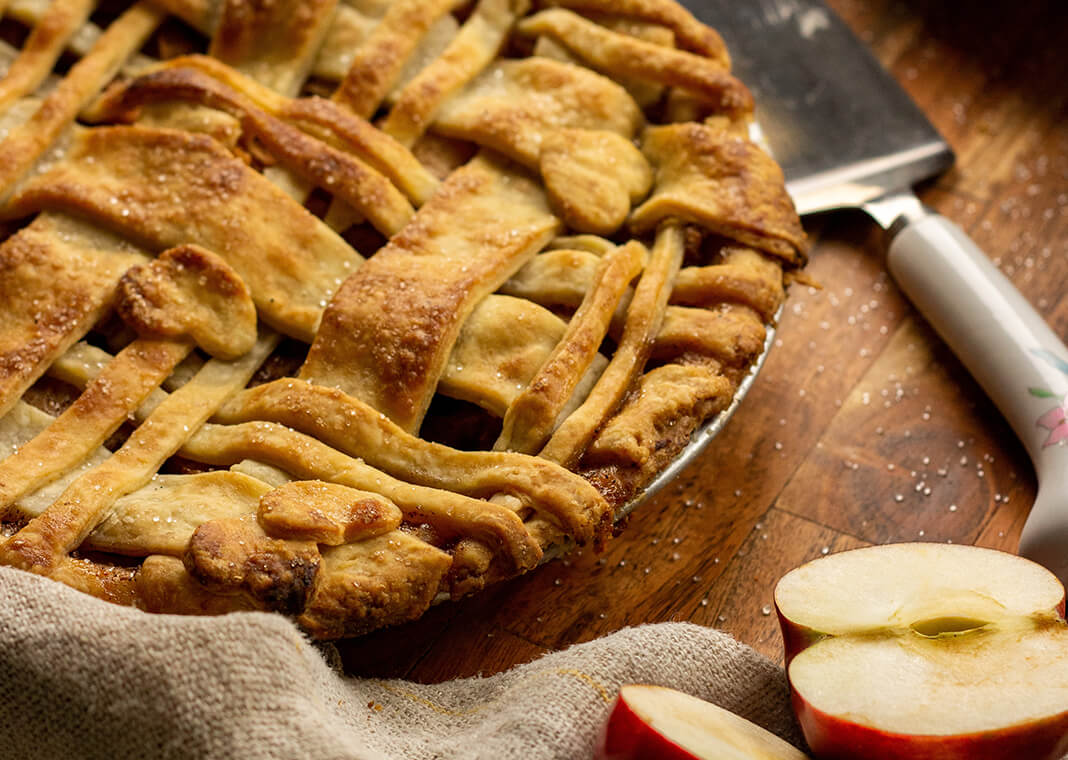
The apple tree in our front yard stands expansively as a remnant of the apple orchard that once spanned our community. I took one bite of the sour fruit and declared them crab apples, just like the ones my dad had to clean up when they fell in the yard. My neighbor across the way, Rosie, watched the apples on our tree fall to the ground, one by one. She was raised on a farm and knew her way around the kitchen. After one season, she had seen enough. “Would you mind if I came and took some of the apples that have fallen from your tree?” she asked, offering to take only those that lay on the ground.
“Of course not,” I answered. “Take as many as you want from the tree as well.”
Thus began a great friendship. Rosie saw value in the apples that I dismissed as “deer food” or a nuisance to be raked. The apples were treasures to her. She made jams and apple butter, apple tarts and apple pies. She brought her delicacies to her church bake sales, provided refreshments to her women’s groups, and shared them with us. I had missed the divine gift she captured in the sour apples.
Recently, I thought about Rosie and the apples as I reflected on how God’s love is inclusive and expansive. He loves all of us, unconditionally and without exception, and calls us to do the same. In what ways do I miss other fruits? I wonder. How may I be blind to the best parts of the people in front of me? When I am quick to judge people, I may miss their fruits.
To be Christian is to love our neighbors without exception. We are called to turn against hate, exclusion, and rejection. And time and time again, we acknowledge our imperfections and invite God’s grace to redeem us despite our sins.
So why does judgment come so easily to us? In the last few weeks alone, I have been a bit judge-y toward self-described evangelicals who don’t go to church, aggressive panhandlers, and even people on video calls who don’t turn on their cameras. I am hardly alone, I know. Our culture teaches us to judge from our earliest days. We are taught to model “good, kind, right” behavior and to avoid “bad, unkind, wrong” acts. It is a short walk, I suppose, from calling “bad acts” to ascribing evil to the actors.
Learning to judge has its place in discerning personal decisions. It is when we apply critical, harsh, and dismissive judgments to others that we allow love to take a backseat. Our judgments are often unloving; they wound and divide us. They separate us from the love of God. Who are we to act as judge and jury? Only God can do that.
What if we reserve our strict codes of behavior to our own lives? “Let anyone among you who is without sin be the first to throw a stone.” (John 8:7) That gives us plenty to work on, doesn’t it?
Embodying the love of Christ calls us to suspend judgment of others and double down on love and compassion. As with the apples, it may be time to mix the sweet with the sour. Let’s listen more and look for God’s presence in each person we encounter.
Photo by stephanie monfette on Unsplash.
